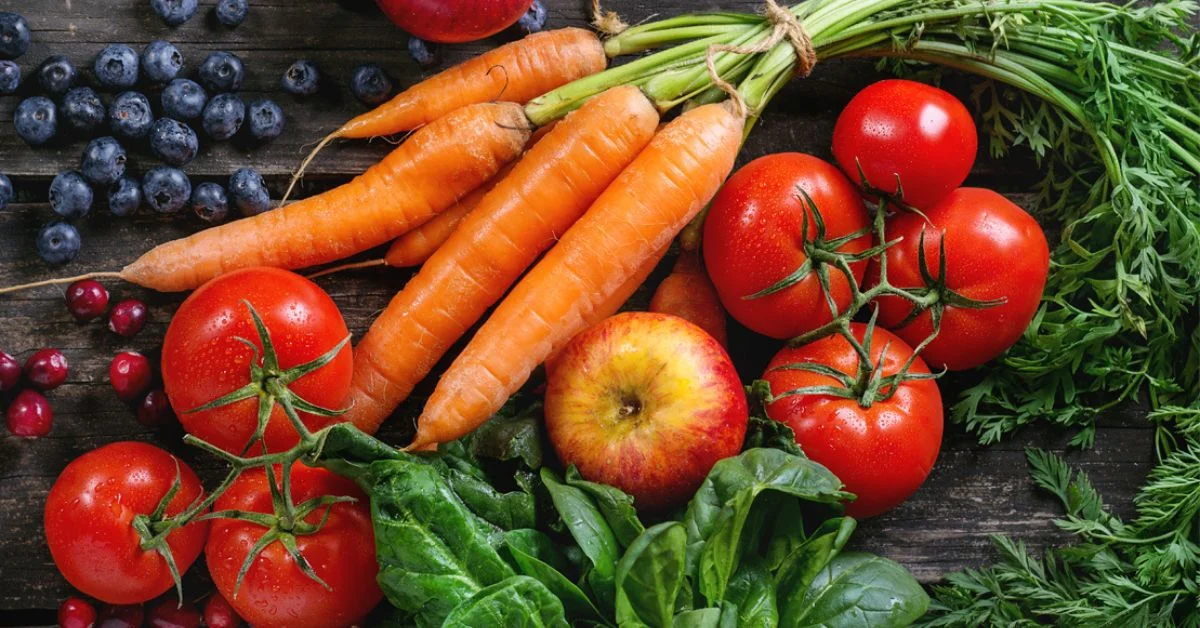FOOD & DRINKS
The Role of Technology in Food Quality Assurance Services

Technology has become an integral part of our daily lives. It facilitates efficiency and drives innovation in various industries. But perhaps one of the most significant impacts of technology can be seen in the food industry, specifically in the realm of quality assurance services.
In this blog post, we will delve into the various technological advancements that have reshaped food quality assurance services. Read on.
Enhanced Traceability
One of the most significant advancements in food quality assurance is the ability to trace food products throughout the supply chain. Technologies such as blockchain allow for secure and transparent tracking of food items from farm to table. This helps in identifying the source of food contamination quickly.
It also builds consumer trust by providing verifiable information about the origin and journey of their food. Companies can now offer detailed records of:
- where ingredients were sourced
- how they were processed
- when they were delivered
This is essential for maintaining high-quality standards.
Real-Time Monitoring
The use of Internet of Things (IoT) devices has revolutionized the way food quality is monitored. Sensors placed in storage facilities and transportation vehicles can provide real-time data on:
- temperature
- humidity
- other critical factors that affect food quality
This proactive approach allows companies to detect and address potential issues before they escalate. It minimizes waste and ensures that products meet safety regulations.
For instance, temperature fluctuations during transport can spoil perishable goods. IoT technology can alert managers immediately. This enables quick action to rectify the situation.
Data Analytics for Quality Improvement
Data analytics plays a pivotal role in food quality assurance. This is by enabling companies to make informed decisions based on empirical evidence. By analyzing data from various sources, businesses can identify trends and areas for improvement.
Such as:
- production processes
- consumer feedback
- inspection results
Predictive analytics can help in forecasting potential quality issues. This allows organizations to implement preventive measures before problems arise.
This data-driven approach enhances product quality. It also optimizes operational efficiency.
Automation in Quality Control
Automation technologies are increasingly being integrated into food quality assurance processes. Such as:
- artificial intelligence (AI)
- machine learning
Automated systems can perform tasks faster and more accurately than human inspectors. Such as:
- visual inspections
- quality assessments
For example, AI-powered cameras can detect anomalies in product appearance. It ensures that only items meeting quality standards make it to consumers.
This reduces the likelihood of human error. It also increases the overall efficiency of the QA process.
Regulatory Compliance
Compliance with food safety regulations is a top priority for food manufacturers. Technology simplifies this process by streamlining documentation and record-keeping. This makes it easier to demonstrate adherence to safety standards.
Software solutions can automatically:
- generate reports
- track compliance metrics
- ensure that all necessary inspections are conducted
This reduces the risk of regulatory penalties. It also helps companies maintain a positive reputation in the marketplace. Make sure to consult an expert to learn more about new tech for food safety management.
Taking Quality Assurance Services to the Next Level
In conclusion, technology plays a crucial role in ensuring the quality and safety of our food. From farm to table, advancements in technology have led to more efficient and accurate quality assurance services. It is essential for food industries to embrace and utilize these technologies.
This is to ensure consumer trust and satisfaction. Let’s continue to embrace technology and work towards providing safer and healthier food for all.
FOOD & DRINKS
Tahhiini: Inside the Making of Sesame Cream

Introduction to Tahhiini
Tahhiini is far more than a smooth paste; it’s a timeless culinary gem cherished for generations. This versatile sesame paste is an essential ingredient in Middle Eastern cuisine, making its way into dishes like hummus and baba ganoush. But what truly makes tahhiini special goes beyond its rich flavor and smooth texture. It carries a history steeped in tradition and offers numerous health benefits.
Whether you’re looking to elevate your cooking or explore new flavors, understanding tahhiini can open up a world of possibilities in the kitchen. Join us as we dive deep into the origins, nutritional advantages, preparation methods, creative uses, and storage tips for this delightful ingredient. Get ready to discover how tahhiini can transform your meals and enhance your overall well-being!
The History of Tahhiini
Tahhiini has deep roots that trace back thousands of years. This creamy sesame paste is believed to have originated in ancient Mesopotamia, where it was prized for its flavor and nutritional value.
Historical texts suggest that tahhiini was used not only as a food source but also in rituals and ceremonies. Its popularity spread throughout the Middle East, becoming a staple ingredient in various dishes.
In regions like Lebanon and Turkey, tahhiini evolved into essential components of well-loved meals such as hummus and baba ganoush. The rich taste made it an indispensable part of culinary traditions.
As trade routes expanded, so did the use of tahhiini beyond its birthplace. Different cultures embraced this versatile ingredient, adapting it to their unique cuisines while keeping its fundamental essence intact.
The Nutritional Benefits of Tahiini
Tahhiini is not just a delicious addition to your meals; it’s a nutritional powerhouse. Packed with healthy fats, this sesame paste provides essential fatty acids that support heart health and brain function.
Rich in protein, tahhiini makes an excellent choice for those seeking plant-based options. Just two tablespoons can deliver about 5 grams of protein, making it a great topping for salads or smoothies.
Vitamins and minerals also shine through in tahhiini. It’s particularly high in calcium, which supports strong bones. Plus, the presence of magnesium helps regulate blood pressure and promotes muscle function.
Don’t forget its fiber content! This nutrient aids digestion and keeps you feeling full longer. Whether you’re spreading it on toast or blending it into dressings, incorporating tahhiini into your diet adds both flavor and nutrition without compromising on taste.
How Tahiini is Made: Traditional vs. Modern Methods
Making tahhiini is an art that has evolved over time, blending tradition with modern techniques.
Traditionally, sesame seeds are roasted to enhance their flavor before being ground into a smooth paste using stone mills. This method preserves the rich oils and nutrients while imparting a deep, earthy taste.
Modern production often involves industrial machinery for efficiency. Seeds may be lightly toasted or even left raw. High-speed grinders create a fine texture but can generate heat that affects flavor and nutritional quality.
Despite these advancements, many purists prefer traditional methods for their authentic taste and aroma. The choice between them often depends on personal preference and culinary application.
Both approaches yield delicious tahhiini, ready to elevate various dishes from dips to dressings. Whichever method you choose, the essence of this creamy delight remains rooted in its simple yet powerful ingredients: sesame seeds transformed by skillful hands.
Creative Ways to Use Tahiini in Recipes
Tahhiini is a highly adaptable ingredient that enhances the flavor and depth of countless dishes. Start your day with creamy tahini drizzled over oatmeal or pancakes. It adds a delightful nutty flavor and richness.
For lunch, mix tahini into salad dressings. Combine it with lemon juice, garlic, and olive oil for a zesty kick. Your greens will thank you.
Dinner options are endless too. Use tahini as a base for sauces to accompany grilled vegetables or roasted chicken. It brings depth to every bite.
Don’t overlook desserts! Blend tahini into smoothies for added creaminess or stir it into brownie batter for an unexpected twist on classic treats.
Experimenting with different cuisines? Incorporate tahini in Asian-inspired dishes like noodle salads or use it in Middle Eastern recipes such as hummus and baba ganoush. The possibilities are truly limitless when cooking with this rich sesame cream.
Where to Buy and Store Tahiini
Finding quality tahhiini can be a delightful adventure. Many grocery stores now carry it in the international or health food aisle. Look for brands that use organic sesame seeds, as this often indicates better flavor and quality.
Online retailers are also a fantastic option. Websites like Amazon and specialty health shops offer various brands, allowing you to read reviews before purchasing. This way, you can discover new favorites without leaving home.
Storing tahhiini properly is essential to maintain its creamy texture and rich taste. Keep it in a cool, dark place like your pantry if it’s unopened. Once opened, transfer it to the refrigerator to extend its shelf life.
Always remember to stir well before using, as natural separation occurs over time. Whether you’re drizzling it on salads or blending into dressings, having fresh tahhiini on hand makes all the difference in your culinary creations.
Conclusion: Incorporating Tahiini into Your Diet and Lifestyle
Embracing tahhiini in your diet offers a delicious way to enhance flavor while reaping numerous health benefits. This versatile sesame cream can be added to dressings, dips, and marinades or enjoyed straight from the jar.
If you’re looking for quick meal ideas, consider drizzling it over roasted vegetables or mixing it into smoothies for an extra protein boost. For those who enjoy baking, tahhiini can replace butter in many recipes, adding richness and depth without compromising on taste.
When shopping for tahhiini, opt for organic varieties whenever possible to ensure the best quality. Store it in a cool place or your refrigerator after opening; this helps maintain its freshness longer.
Integrating this creamy delight into your meals invites not only health benefits but also endless culinary exploration. Whether you’re a seasoned chef or just starting out in the kitchen, incorporating tahhiini will undoubtedly elevate your dining experience while promoting well-being.
FOOD & DRINKS
Nutrition and Erectile Health: Superfoods for Better Performance

In the quest for overall health and vitality, nutrition plays a pivotal role. While many discussions focus on physical fitness and disease prevention, the impact of nutrition on specific aspects of health, such as erectile health, is often overlooked. By incorporating superfoods into your diet, you can nourish your body and support better performance in various aspects of life, including those moments of intimacy.
Introduction
Nutrition is the foundation of good health, influencing everything from energy levels to immune function. When it comes to erectile health, the foods you eat can have a significant impact on blood flow, hormone balance, and overall cardiovascular health. In this article, we’ll explore some superfoods that can support better performance in various aspects of life, including moments of intimacy.
The Power of Superfoods
Superfoods are nutrient-dense foods that offer a wide range of health benefits. From boosting immunity to supporting heart health, these foods are packed with vitamins, minerals, antioxidants, and phytochemicals that nourish the body and promote overall well-being.
While medications like Cenforce 150 and Fildena 150 can offer temporary relief for performance issues, true vitality comes from within. By prioritizing nutrition and incorporating superfoods into your diet, you can support overall health and well-being, including erectile health. So, next time you’re looking to enhance your performance, consider reaching for a plate of nutrient-packed superfoods. Your body will thank you for it.
Superfoods for Erectile Health
- Dark Leafy Greens: Spinach, kale, and Swiss chard are rich in nitrates, compounds that help improve blood flow by dilating blood vessels. This enhanced circulation can benefit erectile function by promoting healthy blood flow to the genitals.
- Berries: Blueberries, strawberries, and raspberries are loaded with antioxidants, which help protect blood vessels from damage caused by oxidative stress. By reducing inflammation and supporting vascular health, berries can contribute to better erectile function.
- Nuts and Seeds: Almonds, walnuts, and pumpkin seeds are excellent sources of arginine, an amino acid that plays a role in the production of nitric oxide. Nitric oxide helps relax blood vessels, allowing for increased blood flow to the genitals and improved erectile function.
- Fatty Fish: Salmon, mackerel, and trout are rich in omega-3 fatty acids, which have anti-inflammatory properties and support cardiovascular health. By reducing inflammation and improving blood flow, omega-3 fatty acids may help enhance erectile function.
Incorporating Superfoods Into Your Diet
Adding superfoods to your diet doesn’t have to be complicated. Here are some simple ways to incorporate these nutrient-packed foods into your daily meals:
- Smoothies: Blend leafy greens, berries, nuts, and seeds into a delicious smoothie for a nutrient-packed breakfast or snack.
- Salads: Add dark leafy greens, berries, and nuts to your salads for a burst of flavor and nutrition.
- Trail Mix: Create your own trail mix with nuts, seeds, and dried berries for a satisfying and nutritious snack.
- Grilled Fish: Enjoy fatty fish like salmon or trout grilled with a side of leafy greens for a heart-healthy meal.
Conclusion
This article highlights the importance of nutrition in supporting erectile health and suggests incorporating superfoods into the diet as a natural approach to promoting better performance. Additionally, it mentions medications like Cenforce 200 and Fildena as part of a broader discussion on wellness.
FOOD & DRINKS
Cake Decorating Made Easy: Kits That Cover All the Basics

Cake decorating is an art that showcases the creativity of a person and transforms an ordinary dessert into a very special one. For people who are just beginners in the field of cake decorating, this journey may seem difficult at first, but once a person gets into it, it will not be that difficult. The perception needed tor the perfect icing or frosting on the cake or to make beautiful flowers or other patterns is very important while decorating the cake.
This problem of complex icing swirls has now been solved by the innovation of cake decorating kits that have made it easy to access perfect and stunning cakes that can be enjoyed at every skill level. These easy-to-use cake decorating kits provide all the important tools that will help you transform your cake decorating journey. This blog will explore the essentials of cake decorating kits, helping you choose the right kit and utilize it effectively to create stunning cakes.
Benefits of Cake Decorating Kits
Cake decorating kits have become increasingly popular due to their convenience and the simplicity they bring to the decorating process. These kits are carefully curated to include a variety of essential tools and supplies, catering to both novices and seasoned bakers who wish to streamline their decorating tasks. By purchasing a kit, you can bypass the hassle of collecting individual items and start decorating immediately with a comprehensive set of tools.
Choosing the Right Cake Decorating Kit
When selecting a cake decorating kit, consider the following to ensure it meets your baking and decorating needs:
Versatility: Opt for kits that offer a range of tools for different decorating techniques, allowing you to explore various designs.
Quality: Choose kits with high-quality components, such as stainless steel tips and silicone piping bags, which are durable and easy to clean.
Comprehensiveness: Ensure the kit includes all the basic necessities like piping bags, tips, and spatulas to cover different types of projects.
Skill Level Compatibility: Select a kit that matches your skill level. Kits designed for beginners usually feature simpler, easy-to-use tools, whereas more advanced kits offer specialized tools for intricate designs.
Factors to keep in mind while choosing cake decorating kit
When choosing a cake decorating kit, it’s crucial to consider several key factors to ensure it meets your specific needs:
Versatility: A good kit offers tools that adapt to various decorating tasks, from simple frosting techniques to complex fondant detailing.
Quality: High-quality materials in your tools, such as stainless steel tips and silicone piping bags, not only provide durability but also ensure ease of use and cleaning.
Comprehensiveness: The kit should cover all the fundamental tools—piping bags, various tips, spatulas, and more—necessary for a broad array of projects.
Skill Level Adaptation: Match the kit to your experience level; beginners should look for kits with straightforward, easy-to-use tools, while advanced decorators might prefer kits with specialized items for intricate work.
Essential Tools Included in Cake Decorating Kits
A well-equipped cake decorating kit should contain the following items to facilitate a variety of decorating techniques:
Piping Bags and Tips: Essential for creating textured designs and intricate details on cakes.
Couplers: These fittings allow you to change piping tips on the same bag, enhancing versatility without the need for multiple bags.
Spatulas: Offset spatulas are crucial for evenly spreading icing, while a palette knife can handle more detailed work.
Turntable: Helps in evenly applying icing and placing decorations around the cake.
Smoothers: Ideal for achieving a flawless finish on fondant-covered cakes.
Fondant Tools: These are necessary for rolling and cutting fondant into decorative shapes.
Decorating Brushes: These are useful for painting detailed designs or applying small amounts of edible glue.
Tips for Effective Use of Your Cake Decorating Tools
To truly benefit from your cake decorating kit, consider the following tips:
Practice Regularly: Use parchment paper or a silicone mat to hone your piping skills before attempting to decorate an actual cake.
Maintain Cleanliness: Keep your tools clean to ensure smooth operation and to avoid flavor contamination.
Learn New Techniques: Explore online tutorials or enroll in cake decorating classes to expand your skills.
Be Creative: Experiment with different designs and techniques. The flexibility of a decorating kit allows you to express your creativity freely.
Conclusion
Cake decorating kits simplify the process of learning and mastering cake decoration, making it accessible to everyone from beginners to professional bakers. With the right kit, patience, and practice, you can easily start creating beautiful, professional-looking cakes. Remember, the journey in cake decorating is not just about perfecting your skills but also about enjoying the creative process and having fun along the way. So, grab your RFAQK cake decorating kit and let your baking adventure begin.

 BUSINESS1 year ago
BUSINESS1 year agoExploring the Benefits of Commercial Printing

 HOME IMPROVEMENT12 months ago
HOME IMPROVEMENT12 months agoThe Do’s and Don’ts of Renting Rubbish Bins for Your Next Renovation

 BUSINESS12 months ago
BUSINESS12 months agoBrand Visibility with Imprint Now and Custom Poly Mailers

 HEALTH8 months ago
HEALTH8 months agoThe Surprising Benefits of Weight Loss Peptides You Need to Know

 TECHNOLOGY10 months ago
TECHNOLOGY10 months agoDizipal 608: The Tech Revolution Redefined

 HEALTH8 months ago
HEALTH8 months agoYour Guide to Shedding Pounds in the Digital Age

 HOME IMPROVEMENT8 months ago
HOME IMPROVEMENT8 months agoGet Your Grout to Gleam With These Easy-To-Follow Tips

 HEALTH11 months ago
HEALTH11 months agoHappy Hippo Kratom Reviews: Read Before You Buy!












